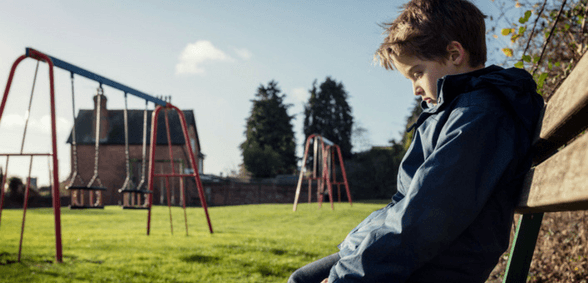
A couple has launched an appeal to overturn a ruling they see as discriminatory, after their son – who has autism – was excluded from school
The parents of a 13-year-old boy – referred to as ‘L’ – with SEND are challenging the fact that their son was excluded from school due to behaviour linked to his autism.
The Upper Tribunal will hear their appeal this week. Current rules state that children like L lose discrimination protection under equality laws because their behaviour can include ‘a tendency to physically abuse’, even if this lashing out is due to their condition. It means that the children are not treated as disabled.
Statistics show that children with SEND account for almost half of school exclusions, but the lack of protection under the Equality Act means organisations don’t have to justify their decision.
Polly Sweeney, a human rights partner at Irwin Mitchell who is representing the family, said:
“This appeal is about the fundamental right of access to education for disabled children whose conditions, like autism, result in behaviours which can be physically aggressive.
“The legal definition of ‘physically abusive’ has been stretched to the point that it means disabled children even as young as six or seven who may have only displayed low level physical aggression on a handful of occasions, or even just once if the physical aggression was significant, are denied protection from discrimination under the law.
“The impact of disabled children being excluded from schools, not just on the child and its family, but on the wider society, is serious and far reaching. We know that children who are excluded from school are more likely to end up in the criminal justice system, and less likely to enter into employment and training.
“We do not believe this was parliament or even the government’s intention when the current rule was introduced and we will be asking the Tribunal to find that the way the rule has been interpreted so far breaches our client’s human rights.
“It is important to make clear that this finding would not mean that schools are prevented from excluding children where it is necessary and proportionate to do so. However, it would ensure that all disabled children are afforded the same safeguards, protections and rights under the law regardless of whether their disability gives rise to challenging behaviour.”
The appeal by L’s parents is supported by the National Autistic Society, which has been joined as an interested party because of the particularly negative impact of the way in which the rule has been interpreted on children with autism. The Secretary of State for Education has also joined as an interested party and is opposing the appeal.
L’s parents said:
‘We believe passionately that our son and other children in his position should have equal rights to be able to go to school and receive the support they need to achieve the best possible outcomes.
“L’s autism means that he will grow up in a world where he will face challenges and adversity throughout his life. School should be somewhere he can go without fear of discrimination or exclusion for actions which he has no control over. These rules currently prevent that and we hope the tribunal will do what is needed to correct this inequality.”
Don’t forget to follow us on Twitter, like us on Facebook, or connect with us on LinkedIn!


Be the first to comment